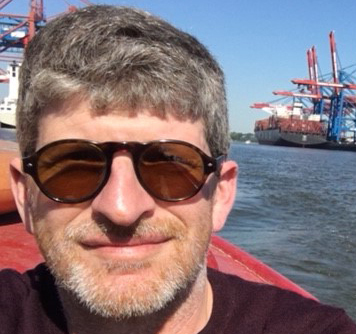On the way back to Toronto from a trip to upstate New York, I plucked up my courage and pulled into a factory outlet mall outside St. Catharines, Ontario. I am a terrible shopper who hates to spend money, and I had delayed replacing my lousy winter jacket for years. Yet the North Face sign on the mall’s exterior beckoned. There would be big sales. I had time. And my wife, who shops for clothes well, was not only in the car but willing to offer advice.
When we got inside, however, I was seized with a crushing desire to leave. Some consumers see a proliferation of choice as a plus; to me, it’s oppressive. After 15 minutes, I found a high-quality coat that ticked all the boxes. But when I asked the clerk to calculate the discount, he served up a final price far higher than the admittedly arbitrary amount I had set out to spend. Indignant for no good reason, I left empty handed.
Now here’s the (predictable) punchline: two weeks later, with the weather getting colder, I forced myself to go to a mall and bought an almost identical parka – for a paltry $36 less. I did finally address my need, but the approach verged on nonsensical. Last year’s Nobel Prize for economics recognized that many consumers like me are predictably irrational, and make choices based not on a Spock-like calculation of self-interest but for reasons that are sometimes a little silly.
The Nobel winner, the University of Chicago’s Richard Thaler, is a pioneer in the field of behavioural economics. His research seeks to explain irrational or self-defeating choices in a field that had long assumed rational decision-making by consumers, investors and other market actors.
Behavioural economics has drawn heavily on research by psychologists who explore how the human brain processes decisions, including how it arrives at a bad decision. But in the past decade or so, the field has expanded further. New studies incorporate neurological findings about the brain, and how these affect choice, says U of T behavioural economist Yoram Halevy. “This is a research agenda that is just beginning,” he observes.
Ryan Webb, a professor of marketing at the Rotman School of Management, has published a groundbreaking neuroeconomics study that explains why some consumers feel overwhelmed or make poor choices when confronted with too many options. His collaborators are Paul Glimcher and Kenway Louie, both of New York University’s Institute for the Interdisciplinary Study of Decision Making. “We know your ability to make the optimal choice gets worse when you have to choose from more things,” he says. “You make more errors and sometimes you don’t even buy anything.”
The crux of Webb’s findings involves neurological insights into the way the senses work and the role they play in decision-making and perception. Neural networks can only hold so much information, Webb explains. The brain, after all, is finite in size, and all sorts of critical functions, such as breathing and heartbeat, need to function constantly in the background – a bit like the operating system of your computer.
Consequently, neural networks function as efficiently as possible. If we needed one set of neurons to read in bright light and another for low light, for example, we’d soon run out of grey matter. Instead, our brains have adaptive mechanisms. The neural systems that create this kind of perceptual flexibility, in fact, share similarities with the compression technologies used to store large quantities of digital data.
“The organization and form of neural computation have evolved such that information about the objective world is approximated,” write Webb, Glimcher and Louie. “It is only natural to examine what these constraints imply for choice behaviour, and whether theories of economic behavior need to incorporate these insights.”
As it turns out, these constraints seem to explain a lot. Webb and his collaborators conducted lab experiments to show what’s happening in the brain when it is presented with a growing number of appealing, or “high value” choices. Under conventional economic theory, Webb says, if someone prefers an apple over other fruits, their degree of preference shouldn’t be affected if they are offered a choice of two, three or 10 fruits.
But lab observations – conducted in part by Louie, a neural researcher – showed, among other things, that when people were presented with an increased number of appealing choices, their capacity to make the right one actually diminished. When the brain tries to sort among too many options that have been compressed into a finite neural network, its capacity to distinguish between them becomes less effective and efficient. “When they are compressed, different items appear to be ‘closer’ [in value],” Webb says. “So when asked to pick between them, you might make errors.”
Halevy points out that the techniques in both behavioural economics and neuroscience involve randomized trials and experiments, including neurological studies that track blood flow in various regions of the brain as individuals are presented with different options. “It’s become much more of a science in the traditional sense compared to what economics was in the 1960s.”
The research in these fields, Halevy notes, point toward several applications, including better bargaining and negotiating strategies that could have implications for everything from real estate transactions to labour contracts.
Webb, for his part, says his team’s empirical findings also have the potential to improve public policy outcomes. By educating individuals to discard inferior options first — gradually trimming their choice sets until only preferably options remain — governments could subtly steer families toward choices that will benefit them. As Webb, Glimcher and Louie conclude, “Our results speak to the role of incorporating insights from biology into economic discourse.”
Recent Posts
U of T’s 197th Birthday Quiz
Test your knowledge of all things U of T in honour of the university’s 197th anniversary on March 15!
Are Cold Plunges Good for You?
Research suggests they are, in three ways
Work Has Changed. So Have the Qualities of Good Leadership
Rapid shifts in everything from technology to employee expectations are pressuring leaders to constantly adapt






